Location
Curriculum
120 credit hours
Program Length
as few as 28 months
Accreditation
Accredited by ABHE
Gain Wisdom and Understanding with a Bachelor of Arts in Philosophy
Welcome to the fascinating realm of Philosophy, where the quest for wisdom takes center stage. Philosophy, derived from the Greek term “the love of wisdom,” beckons you to embark on a journey of passionate exploration. But here at Columbia International University, being a philosopher means something even more profound—it means delving into the depths of knowledge while cultivating a relationship with Christ, the embodiment of divine wisdom.
As a Christian philosopher, your intellectual pursuits will go beyond acquiring knowledge and honing critical thinking skills. You will wholeheartedly embrace the call to love God with your entire being, including your mind, heart and soul. Furthermore, your intellectual gifts will be utilized in the service of others, exemplifying the transformative power of love in action.
As a student in CIU, your intellectual horizons will expand as you delve into the ideas that have shaped our world. Through rigorous analysis of arguments, you will sharpen your critical thinking abilities and refine your skills in reading, writing and speaking. But the journey does not stop there. With a solid biblical worldview as your foundation, you will navigate the intellectual landscape with discernment, equipping yourself to critically evaluate ideas and beliefs that permeate our society.
Prepare to embark on a lifelong adventure, where wisdom and faith intertwine harmoniously. By embracing the discipline of Philosophy, you will cultivate a profound understanding of God’s truth and engage in the ongoing pursuit of wisdom. CIU invites you to join a vibrant community of thinkers, scholars and truth-seekers who are committed to using their intellect to illuminate the world with God’s love and transformative power.
Are you ready to embark on this remarkable journey of intellectual exploration, guided by the light of Christ’s wisdom? Come and discover the extraordinary possibilities that await you as a Philosophy major at Columbia International University.
Chandler
Why Choose Columbia International University
At Columbia International University, choosing our philosophy major means embarking on a transformative journey of intellectual exploration and spiritual growth. Our program offers a unique and enriching experience, providing you with a philosophical education grounded in a distinctively Christian worldview. As you delve into the ideas that shape our world’s cultures, you will discover how to integrate your intellectual pursuits with your faith, fostering a deep connection between knowledge and spirituality.
What sets our philosophy program apart is the personalized attention and support you will receive. With our small class sizes and close-knit community, you can expect to forge meaningful relationships with your major director and professors. They are dedicated to your academic and personal development, walking alongside you every step of the way. This individualized approach ensures that you receive the guidance and mentorship necessary to excel in your studies and cultivate a robust understanding of philosophy within the context of your faith.
As a student in our philosophy major, you will not only engage in rigorous intellectual inquiry but also nurture a profound understanding of your Christian beliefs. You will explore how philosophy intersects with theology, ethics and critical thinking, equipping you with the tools to analyze complex ideas and articulate your own convictions with clarity and conviction. This holistic approach fosters the development of a well-rounded worldview, empowering you to navigate the challenges of our ever-changing world and make a meaningful impact in your chosen field.
By choosing CIU for your philosophy degree, you become part of a vibrant academic community that values both intellectual pursuit and spiritual growth. You will be surrounded by like-minded individuals who are passionate about deepening their understanding of God’s truth and engaging with the world around them. At CIU, you will not only receive an excellent education but also find a supportive community that nurtures your faith and encourages you to live out your calling with purpose and conviction.
Join us at Columbia International University and embark on a transformative journey that will shape not only your intellectual capabilities but also your character and spiritual life. We are here to guide you, inspire you and equip you for a lifetime of meaningful engagement with the profound questions that philosophy seeks to answer.
Overall Benefits of this Degree
While the pursuit of philosophy is an end in itself, it also opens doors to a myriad of captivating and intellectually stimulating career paths. The skills and knowledge you acquire throughout the program will equip you for diverse fields, including education, law, politics, organizational leadership and ministry.
The Philosophy major nurtures your intellectual growth and fosters critical thinking and also serves as an excellent foundation for further academic pursuits. Many students who have completed their undergraduate degree in philosophy have gone on to pursue advanced degrees in various disciplines. Whether you aspire to delve deeper into academia or desire to make an immediate impact in the realm of church ministry or teaching, a philosophy degree offers a solid groundwork for your future endeavors.
At CIU, we believe that your journey as a philosopher is not confined to the classroom. We provide you with a supportive community of faculty and peers who will encourage and challenge you along the way. The close-knit environment of our program ensures that you receive personalized attention from your dedicated major director and esteemed professors. Their expertise and guidance will empower you to excel academically and personally, helping you to shape your own unique path as a philosopher and make a meaningful difference in the world around you.
With a Bachelor’s degree in Philosophy from CIU, you will not only be equipped with practical skills and knowledge but also be prepared to embark on a lifelong adventure of intellectual exploration, personal growth and impactful service. Your journey as a philosopher awaits, and we are here to support and inspire you every step of the way.
Featured Faculty
What Will I Study?
In addition to the undergraduate core, here are degree specific-courses you can expect to take:
- PHI 3310 Classical Philosophy
In this history of philosophy course, you will explore the central ideas of classical philosophy by reading central works of the presocratic and Greek philosophers that are foundational to the development of Western thought, politics, ethics, and religion.
3.00 credit hours
- PHI 3320 Medieval Philosophy
In this history of philosophy course, you will explore the central ideas of medieval philosophy by reading the central works of the medieval philosophers, which are characterized by the synthesis of classical Greek thought with Christian theology.
3.00 credit hours
- PHI 3330 Modern Philosophy
In this history of philosophy course, you will explore the central ideas of modern philosophy by reading the central works of the modern philosophers that provide the basis for our present postmodern context.
3.00 credit hours
- PHI 3340 Contemporary Philosophy
You will focus on questions and issues in various contemporary philosophical discussion, such as the question of identity, use of narrative, views on truth, explaining values, and relativism.
3.00 credit hours
- PHI 3500 Philosophy of Science
You will explore the fundamental questions at the intersection of science and philosophy. Topics can include Newtonian and Einstein's models of the universe; scientific revolutions; the relationship between science and religion; global climate change, medicine, and ethics.
3.00 credit hours
- PHI 3510 Philosophy of Human Nature
This course introduces students to the philosophical study of human nature and the ethical implications of different metaphysical theories of humanity. Students will study a variety of accounts of what makes humans distinct from mere animals, and a variety of accounts of the philosophical grounds of human dignity and human rights. Students will learn to discern implications of these views for some of the pressing ethical questions of our time. (3) Prerequisite: PHI 2110
3.00 credit hours
- PHI 3515 Theory of Knowledge
This course introduces students to the philosophical study of knowledge and related concepts, such as rational belief and epistemic justification, and the implications of various philosophical views for science, theology, politics, and everyday living. Content will include definitions of knowledge, skeptical challenges, accounts of epistemic justification and rationality, the epistemology of disagreement, and the epistemology of theology. (3) Prerequisite: PHI 2110
3.00 credit hours
- PHI 3600 Introduction to Political Science
You will explore an introduction to political thought as it relates to the meaning of democracy, citizenship, justice, authority, and identity. Readings and discussions center on the themes and ideologies in the history of political thought as well as those dominant in Western political theory.
3.00 credit hours
- PHI 3610 Introduction to Christian Apologetics
This course introduces students to Christian apologetics: the task of "giving a defense" of the Gospel and Christian doctrine to contemporary intellectual and cultural challenges. Students will study specific challenges to Christian doctrines and responses to those challenges, as well as comparing and contrasting different approaches to the apologetic task (e.g., classical apologetics, presuppositionalist apologetics, etc.). (3)
3.00 credit hours
- PHI 4700 Philosophy of Law
In this seminar-style course on philosophy of law, you will focus on the conceptual analysis of law, including Natural Law Theory, Legal Realism, and Hart's Positivism. We will examine the following sorts of questions: What is the law? How is it different from other systems of norms, such as morality? In a second part of the course, you will explore questions of normative jurisprudence.
3.00 credit hours
- PHI 4810 Philosophy Seminar
This is an advanced seminar in which you will explore a specific area of philosophy in greater depth. The areas generally chosen as topics for seminars will be Philosophy of Religion, Augustine, Political Philosophy, Aesthetics, or Ethical Theory. The format of the course is non-lecture, with individual student reading, writing, and class participation considered primary.
3.00 credit hours
- PHI 4811 Augustine Seminar
This is an advanced seminar in which you will explore Augustine's thought in greater depth. This course aims at developing both an in depth understanding of the content area but will also aim to develop your philosophical thinking and writing skills. The format of the course is non-lecture, with individual student reading, writing, and class participation considered primary.
3.00 credit hours
- PHI 4812 Political Theory Seminar
This is an advanced seminar in which you will explore Political Theory in greater depth. This course aims at developing both an in depth understanding of the content area but will also aim to develop your philosophical thinking and writing skills. The format of the course is non-lecture, with individual student reading, writing, and class participation considered primary.
3.00 credit hours
- PHI 4813 Philosophy of Religion Seminar
This is an advanced seminar in which you will explore Philosophy of Religion in greater depth. This course aims at developing both an in depth understanding of the content area but will also aim to develop your philosophical thinking and writing skills. The format of the course is non-lecture, with individual student reading, writing, and class participation considered primary.
3.00 credit hours
- PHI 4814 Moral Theory Seminar
This is an advanced seminar in which you will explore Moral Theory in greater depth. This course aims at developing both an in depth understanding of the content area but will also aim to develop your philosophical thinking and writing skills. The format of the course is non-lecture, with individual student reading, writing, and class participation considered primary.
3.00 credit hours
- PHI 5001 Graduate Seminar in Philosophy
This is a graduate-level seminar for higher-achieving students with the goal of introducing the student to graduate-level learning using a specific topic. Emphasis is placed on advanced reading and research within the topic, classroom seminar presentations with multiple presenters, and/or other learning activities that demonstrate appropriate critical thinking at the graduate level. Course admission is by permission of the instructor, and the course may be repeated once with different seminar content within the academic discipline.
3.00 credit hours
- BIB 4117 Wisdom Literature
In this course, you will master the content and theology of the Old Testament Wisdom books (Job, Proverbs, and Ecclesiastes) by utilizing the exegetical tools you learned in BIB 3420. Emphases include: The unique purpose of each Wisdom book, the discovery of meaning, and the contemporary application of meaning. The instructor stresses the importance of literary analysis. This course serves as an Old Testament exegetical book study.
3.00 credit hours
- ICS 3110 Introduction to World Religions
This course is an introduction to the broad historical development, philosophical structures, and worldviews of the non-Christian religions. You will explore primal religions, Hinduism, Buddhism, Chinese and Japanese religions, and Islam, as well as some of their folk expressions.
3.00 credit hours
- MUS 4200 History of Western Music I
In this course, you will cover the time period from about AD 600-1750. The course begins with an introduction to ancient music and continues through the periods of the Middle Ages, Renaissance, and Baroque. You will study the musical characteristics, instruments, and theory of each period as well as the cultural and historical contexts including philosophy, religion, politics, art, architecture, and daily life. Connections are made to music from other cultures as well as contemporary musical styles.
3.00 credit hours
- MUS 4201 History of Western Music II
In this course, you will examine the history of Western music from the Classical Period through the present day, stressing the origin and evolution of musical forms and musical styles and the important composers since 1750. Students will also be placing this knowledge in the broader cultural context of each period.
3.00 credit hours
- MUS 4810 Contemporary Christian Worship
In this course, you will begin to examine the many facets of music ministry in today's church, including service planning, worship philosophy, sound reinforcement and recording, musical/drama production, team building, and contemporary worship styles. Segments may be taught by a variety of specialists.
3.00 credit hours
Accreditation and Accolades


Career Path Opportunities
- Education: Philosophy majors may go on to teach in a variety of educational environments, from elementary to the university level. The major is excellent preparation for graduate work in education.
- Theology and Ministry: The Philosophy degree is excellent preparation for pursing a graduate degree in theology. Some students, especially those who have double-majored in Bible and Philosophy, have stepped directly into church ministry careers.
- Law: The Philosophy major can be easily be used as a pre-law major. Philosophy majors typically do well on the Law School Admissions Test (LSAT).
- Graduate School: The philosophy degree is excellent preparation for entering graduate programs in a wide variety of areas, such as Business, Economics, Education, Political Science, Psychology, English/Literature, Theology and, of course, Philosophy.
Top FAQs
- What is philosophy?
-
“Philosophy” literally means “the love of wisdom.” It can be understood as the pursuit of a rich and deep understanding of all of life: ultimate reality, the world around you, and your place in the world. As an academic discipline, the study of philosophy involves critically engaging with the ideas that shape cultures and worldviews, both contemporary and historical.
- What can I do with a philosophy degree?
-
Anything you want! Though that may sound overly optimistic, it is nevertheless true that the training in critical thinking and the clear communication of ideas that a philosophy major gives students is relevant to every area of life, including just about any career path. For specific common career paths taken by philosophy majors, see the section on “career path opportunities.”
- Isn’t studying philosophy spiritually dangerous?
-
It depends entirely on how it is studied. As the poet said, “A little learning is a dangerous thing; drink deep, or taste not the Pierian spring.” In other words, it is not learning about philosophy, but shallow learning, that is dangerous. Poorly studied philosophy, just like poorly studied theology, is not spiritually beneficial. But studying philosophy in order to better understand and more skillfully critique ideas, and doing so under the Lordship of Christ, is spiritually beneficial. Studying philosophy can better arm you to avoid being taken captive by hollow and deceptive philosophies (Colossians 2:8)!
- What are the future earnings expectations of philosophy majors?
-
Philosophy majors enter a variety of careers after college, so there is a wide range of possible future earnings, especially just after college. On average, however, by mid-career, statistics show that philosophy majors are earning more than most other majors, including business majors. Though earning potential should never be your primary reason for choosing any major, you should also not let fear of future earnings stop you from majoring in philosophy!
- What is wisdom?
-
Wisdom in general is understanding reality in a way that leads to living well; however, this means that from a biblical perspective wisdom is inseparable from the knowledge of God. Wisdom is knowing God in and through Christ--whom the Bible also calls the Wisdom of God (e.g., 1 Cor. 1:24 & 30). From a biblical Christianity perspective: philosophy is the loving pursuit of the knowledge of God in and through Christ. (This also fits well with CIU’s motto: “To know Him and to make Him known.”)
- What can I expect to study in the Bachelor’s in Philosophy program?
-
In our Bachelor’s in Philosophy program, you will engage with a wide range of philosophical topics, including ethics, metaphysics, epistemology, logic, philosophy of religion and more. Through a carefully crafted curriculum, you will explore the ideas and theories that have shaped human thought throughout history, developing critical thinking skills and a deep understanding of philosophical concepts.
- How will studying philosophy benefit me personally and professionally?
-
Studying philosophy enhances your ability to think critically, analyze complex issues and articulate well-reasoned arguments. These skills are highly valued in various professions, including law, education, business, public service and ministry. Additionally, philosophy nurtures intellectual curiosity, fosters a love for lifelong learning and cultivates wisdom that can enrich all aspects of your personal and professional life.
- Will I have opportunities for discussion and interaction with faculty and fellow students?
-
At CIU, we prioritize fostering a close-knit academic community. In our philosophy program, you can expect engaging class discussions, small-group seminars and one-on-one interactions with experienced faculty members. This collaborative learning environment allows you to exchange ideas, challenge assumptions and deepen your understanding through meaningful interactions with both faculty and fellow students.
- How will studying philosophy from a Christian perspective impact my education?
-
Studying philosophy from a Christian perspective at CIU means integrating your faith with intellectual exploration. You will explore how biblical principles and Christian worldview inform and shape philosophical inquiries. This unique approach not only provides a solid foundation for understanding the relationship between faith and reason but also equips you to engage with philosophical ideas and worldviews from a distinctively Christian perspective.
- Can I pursue graduate studies after completing my Bachelor’s in Philosophy at CIU?
-
Our Bachelor’s in Philosophy program lays a strong foundation for further academic pursuits. Many of our graduates have gone on to pursue advanced degrees in philosophy, theology, law, psychology and other related fields. Whether you choose to continue your education immediately or after gaining professional experience, your undergraduate degree in philosophy will position you well for graduate studies.
- Are there opportunities for practical application of philosophy outside the classroom?
-
At CIU, we believe in the importance of practical application alongside theoretical learning. Throughout your studies, you will have opportunities to engage in internships, research projects and community service activities that allow you to apply philosophical concepts to real-world scenarios. These experiences will not only deepen your understanding but also equip you with valuable skills and experiences for future endeavors.
- What kind of career paths can a Bachelor’s in Philosophy lead to?
-
A Bachelor’s in Philosophy opens doors to diverse career paths. Graduates pursue careers in fields such as law, academia, consulting, public service, non-profit organizations, ministry, writing and more. The critical thinking, analytical reasoning and communication skills gained through studying philosophy are highly transferable and in demand across a wide range of professions.
- How does the philosophy program at CIU integrate faith and learning?
-
At CIU, we believe in the integration of faith and learning in all academic disciplines, including philosophy. In our philosophy program, you will explore how philosophical ideas intersect with biblical truths and Christian worldview. Through guided discussions, thoughtful reflection and faculty mentoring, you will develop a deeper understanding of how your faith and philosophical studies intertwine.
- Are there research opportunities available for philosophy students?
-
Yes, as a philosophy student at CIU, you will have opportunities to engage in research projects under the guidance of faculty mentors. These projects can deepen your understanding of specific philosophical topics, refine your research skills and provide valuable experience.


